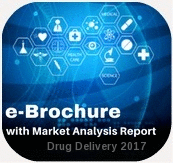
Kang Choon Lee
SungKyunKwan University, South Korea
Title: Peptide PEGylation strategies for drug development
Biography
Biography: Kang Choon Lee
Abstract
Statement of the Problem: The tremendous potential of peptide drugs is hampered by the short half-lives in vivo, resulting in a significantly lowered potency than their activity seen in vitro. These short-acting therapeutic agents require frequent dosing profiles that can reduce applicability to the clinic, particularly for chronic conditions. Therefore, half-life extension technologies are entering the clinic to enable improved or new biologic therapies.
Methodology & Theoretical Orientation: PEGylation is a commonly utilized technique to improve drug blood circulation time, reduce immunogenicity, and decrease dosing frequency of peptide and protein drugs. As with any form of molecular modification, the active site is affected and can drastically decrease the bioactivity of the therapeutic agent due to the steric hindrance, especially when conjugate small molecular weight molecules such as peptides with high molecular weight PEGs. Therefore, it is generally accepted that a balance must be obtained between the molecular weight of the PEG and the activity of the therapeutic molecule to reach a sufficient drug efficacy. To solve this problem, we focused on the balancing between PEG size and shape in addition to the site-specific bioconjugation.
Findings: Unlike the existing PEGylation technology, we developed a novel PEGylation method with a very long half-life combined with the retention of the peptide activity, resulting in a long duration of action with potentially reduced adverse effects in humans. By utilizing this novel PEGylation technique, we designed a new long-acting GLP-1R agonist, PEGylated exendin-4 (Olaedin®). The Olaedin was evaluated extensively in vitro and in vivo with a very long half-life (88 hour in non-human primates vs. 2 hour exendine-4) without the loss of its biological activity. We also tested the therapeutic potential of Olaedin® on the type-2 diabetes and Parkinson’s disease animal models.
Conclusion & Significance: Strategic PEGylation can be a platform technology to extend the half-life while preserving the biological activity of peptide and small protein drugs.

